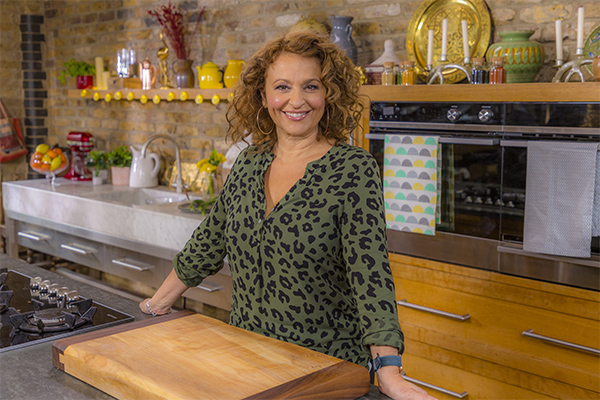Weddings are exciting events that bring joy - but, for the individuals getting married, wedding planning can bring a tidal wave of mixed emotions where moments of anxiety can hijack the joy.
We asked our members for advice for those who are about to take the plunge this summer.
It’s normal to feel nervous
Our member and therapist Charlotte Monk says that pre-wedding stress and nerves are completely normal,
“To question if you’re doing the right thing - do I love this person enough? Will our marriage last? Alongside all the other potential worries around family dynamics, money and your appearance on the big day, it can be overwhelming.
“These feeling are inevitable when making such a big commitment, and when chucking some serious finances into to occasion too. In fact, so normal, that I would be more concerned if you weren’t considering these questions! It is all a part of processing a big change, deciding on your life path, and merging families.”
Counsellor and member Lorraine Collins suggests prioritising self-care and asking family and friends to pitch in:
“Calming techniques like breathwork and making time to come back to a gentle reset, in whatever way works for you, is crucial for emotional regulation.
“Your support network will hold and contain some of the pre-wedding anxiety. Delegation and outsourcing are a key factor in managing your stress. Remember you ‘can’t catch every ball’ even if you might want to. Writing a list, talking through any fears with a therapist is also a helpful way to ‘right size’ any issues, concerns or things that may feel problematic.”
It doesn’t have to be perfect
Lorraine says, “Perfectionism plays a huge part in pre-wedding stress. It’s understandable to feel a little anxious especially when you’ve got so many logistics to consider, immediate family, friends, and extended family that you may not have seen for some time. Past hurts and tensions are all in the mix and somehow must find a place to park and settle for the day.”
Our member and counsellor Georgina Sturmer says, “If you find yourself getting caught in a perfectionist trap, try to figure out what’s going on. Are you trying to attain something that is within your reach. And if not, are you trapping yourself in a cycle of frustration and irritation? Are you trying to meet someone else’s expectations?”
She recommends recording a realistic set of goals for how you want your day to be, and to keep these in mind during the planning process, to help retain a sense of perspective.
“The online world, and social media specifically, can add fuel to any perfectionist urges. Consider if you need to limit your use of specific apps or the time spent scrolling on your phone,” she adds.
Listen to advice but have it your way
“In some cultures, there’s an expectation of how your wedding should be organised and planned. This can cause tension and conflict with your own wishes,” says Lorraine,
“It’s important to make sure you have a trusted supportive network around you, perhaps an understanding aunt, uncle, godmother who can advocate for you. In the absence of a supportive family member, you could call on a friend (maybe bridesmaid or best man) to sit alongside you during the planning process.
“Remember this is your day and it’s important that you do what’s right for you and your partner.”
Ignore social media flexing
“Society puts a lot of pressure on marriage nowadays and social media circulates thousands of images depicting ‘the perfect couple’, couple goals and endless spectacular honeymoon moments,” says Charlotte,
“Just remember these are carefully choreographed snapshots, there is no such thing as a perfect marriage (or life!) - relationships take hard work, compromise, difficult conversations, and purposeful engagement to thrive. It is normal for relationships to go through times of harmony and disharmony.”
Enjoy your day, your way
Georgina says: “It’s natural to want all our guests to enjoy themselves. But ultimately, this isn’t something that we can control. All we can do is plan for the day to be fun, special and memorable, and to focus on making sure that we’re truly enjoying ourselves.”
Charlotte agrees “It’s worth reflecting on the fact that the people who’re coming to your wedding are there because they love and support you and your partner. Once you’ve laid on a beautiful wedding that you are proud of, they’re responsible for their enjoyment of the day.”
“Remember the reason you’re getting married,” says Lorraine, “it’s a solid base to come back to that creates a sense of grounding. When all’s said and done, some of the most memorable and heart-warming weddings are the ones that had a few clumsy moments – that’s what made them so special and unique.
“Your friends and family will be rooting for you all the way, so let that thought be you anchor and emotional banister to keep in mind and hold onto.”
Be confident and comfortable
Georgina says you should focus on offering yourself kindness and compassion.
“We don’t all naturally revel in the thought of being centre of attention for the day, with camera lenses focused on us. But remember that you are creating happy memories, in front of a crowd of loved ones.
“Think about what you can do to help you to feel at your most comfortable and confident on your big day.”
“Weddings are a breeding ground for insecurity,” agrees Charlotte, “Do I need botox, teeth whitening, professional make up, lose weight, gain weight, hair transplant, manicure, hairstylist - the list goes on and on.
“Take a metaphorical step back and a deep breath - are you comparing yourself to heavily edited images, a socially constructed idea of perfection and attractiveness?
“Of course you want to feel your best on your wedding day. Try writing down a few key things to help you feel confident and comfortable when under everyone’s gaze. And while these choices will empower you hold close the truth that beauty also comes from within and in the eye of the beholder.”
Enjoy your post-wedding free time
“After the wedding day it is usual to feel a crash after all the excitement,” says Charlotte,
“Once the 'I do’s' are done and the planning is over it’s inevitable there’ll be a lower ebb, a re-normalising of life together once the pre-wedding spotlight is suddenly turned off.
“Enjoy this time to settle into your new marriage together and remember why you chose to marry each other - freed from the stress of planning the wedding you might find you have time to fill. Make sure you’re setting aside time to nurture your relationship and plan things you enjoy doing together.
“Having things to look forward to truly makes a difference to mental wellbeing. As does appreciating the small joys like a walk in the park, cooking a new recipe together, lazy Sunday breakfast in bed or a booking a well-deserved mini break.”
Georgina agrees: “That ‘to do list’ is finally over, and you might have more disposable income now that the wedding is done and dusted. You’ll be able to make fresh choices about how to spend your time and money. Make some plans so that you can enjoy all this new-found free time.”
Shake the post-wedding blues
Georgina says: “It’s normal to feel a sense of sadness or low mood once the excitement of the wedding is over. All the planning and expectations drift into the rearview mirror, and we’re left with a feeling of boredom or loss, a sense of anticlimax.”
“Here’s the good part. The party might be over. But the marriage has just got started. So, if you are feeling low, remind yourselves of the core reasons why you decided to marry each other.
“In most instances, the post-wedding blues isn’t too long lived. But if that sense of sadness continues or worsens, then it’s worth considering professional help, like counselling, to help you to look at what is really going on.”
Charlotte agrees, “If you find after a few weeks you are still struggling with feeling low or worried, and you’ve talked to your partner, close friends and family about how you’re feeling. You may benefit you to reach out to a qualified relationship therapist- your relationship doesn’t have to be in crisis to come to couple therapy.
“It’s an amazing space to enhance communication, create a sense of deep knowing, and really prioritise your relationship in a busy world.”
If you would like to discuss any of these issues with a trained and registered counsellor or therapist, please visit the BACP directory.

Couples counselling
Our members Arabella Russell and Vasia Toxavidi discuss how couples therapy – or relationship counselling - can help improve your relationship

Relationship counselling research gives unique insight into why couples attend therapy
Our study collected data from 14,726 couples attending counselling with Relate

TV star and husband say counselling has made them stronger
Former EastEnders star Nadia Sawalha says many couples would benefit from relationship therapy
